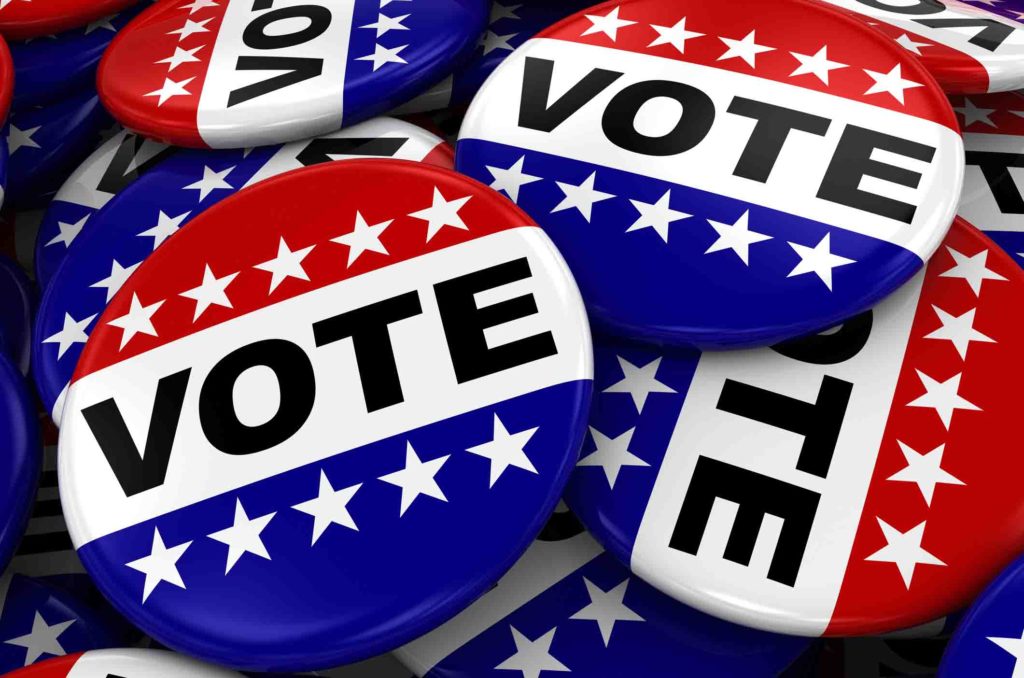VOTE: A Student-Led Forum
“The United States is coming up on one of the most contentious elections in history—and not just because the candidates support very different policies. In order to address why this election is so unique, I’m going to explain the details of how a presidential election works in the United States.” Thus began senior Ben Crawford, as he kicked-off Hall on October 8. Ben was one of five seniors in Stewart Thomsen’s AP U.S. Government and Politics course—along with Robert Balson, Will Cote, Frankie Lonergan, and Willem Santry—who ably led RL’s first virtual panel/forum-style Hall on the election process in America.
Ben expanded upon his opening statement by describing federal versus state purview when it comes to elections in the U.S., as well as the intricacies of the Electoral College. He walked his audience through a brief history of voting rights in America—from the Voting Rights Act of 1965, to Women’s Suffrage and the 19th Amendment, to the risks inherent in the 2013 Supreme Court ruling in Shelby County v. Holder.
Segueing smoothly to the potential impediments to voting in the 2020 presidential election, Frankie Lonergan took listeners through a state-by-state look back at primary season—particularly in Milwaukee, Wisconsin, and in Atlanta, Georgia. “In Wisconsin, statewide elections were heavily impacted by long lines and closed polling locations, thanks in large part to the pandemic. Milwaukee experienced a serious shortage of poll workers, forcing the city to reduce the number of polling locations from 180 down to 5… Some Milwaukee residents waited up to two hours to cast their ballots.”
Frankie described the courts’ role in arbitrating disputes over voting issues, as well as the recent executive order in Texas limiting the number of absentee ballot drop-off boxes to just one per county, effectively forcing some people to travel 47 miles to cast their vote. Finally, Frankie described the changes to the postal service operation that Louis DeJoy has attempted to institute in his new role as United States Postmaster General, and how they could potentially impact people’s ability to vote effectively by mail.
Because some are voicing concern that next month’s election will not be decided on election night, but that rather the results will take much longer to realize, Robert Balson walked students and faculty through the 2000 presidential election of Bush versus Gore, detailing the close race and Florida recount, hanging chads and the Supreme Court decision, and in conclusion played Gore’s concession speech in full.
Will Cote then walked students and faculty through the possible outcomes of this upcoming election: He drew attention to close polls and the reality that the presidential election could, in fact, go either way. He walked through various scenarios—a decisive Biden victory, a decisive Trump victory, a situation in which the race is too close to call in the days following, and that neither candidate concedes, or—worse—casts aspersions on the validity of the election and its process. “Will there be recounts due to irregularities in the process?” posed Will. “Will the courts have to become involved? Will the in-person vote determine the winner? Or will the mail-in ballots counted days later determine the winner? Nobody can say for sure.”
Finally, Willem answered the question What should you do if you want to vote? He shared the very practical tools and logistical steps that someone must follow in Massachusetts so that they are registered to vote, know what their voting options are, and know where to go to cast their ballot—either in person or by mail.
After the boys’ presentations, the entire school moved to one of five discussion Zoom rooms, featuring each of the senior panelists and hosted by members of the history department. In those Zoom rooms the five seniors answered questions from their fellow schoolmates and members of the faculty and staff.
View the entirety of the students’ Hall presentation here. (And vote!)

